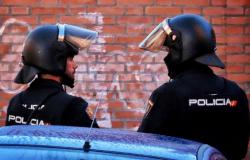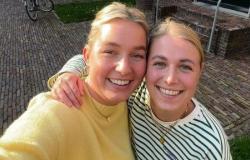Where does this news come from?
Babies infected with whooping cough can become short of breath and weakened by violent coughing fits. When they become exhausted, they stop drinking. They also occasionally stop breathing. The first vaccine against whooping cough is possible at the earliest at 8 weeks being given. Children receive the following injections:
- 12 and 16 weeks;
- 15 months;
- 6 years;
- 14 years.
In the first year of life is whooping cough the most dangerous. To reduce the risk of a serious outcome, pregnant women should be vaccinated between 24 and 32 weeks of pregnancy. In Flanders, 85% of pregnant women follow this advice.
Of the 21 babies admitted to a Flemish hospital with whooping cough on April 12, 2024, some
- 9 babies born to unvaccinated mothers;
- 7 babies born to vaccinated mothers.
The vaccination status of the remaining 5 could not be checked.
The Care Department calls on pregnant women to have themselves (and their child) vaccinated against whooping cough.
Source
(1) Verstraete, A. This year, 23 babies have already been admitted to hospital with whooping cough: ‘Vaccination during pregnancy greatly reduces the risk’. VRT NWS. April 24, 2024
How should you interpret this news?
Of the seriously ill babies, 9 were born to unvaccinated mothers and 7 were from vaccinated mothers. Because most mothers (85%) are vaccinated, the 9 babies come from a much smaller group (15%). Based on those figures you can calculate that a baby of an unvaccinated mother is 7 times more at risk to become seriously ill from whooping cough compared to a baby born to a vaccinated mother.
Vaccination against whooping cough during pregnancy is safe for mother and child. The antibodies that the mother produces reach the baby through the placenta and thus provide protection. Since 2013, the Superior Health Council has recommended vaccinating women against whooping cough between the 24th and 32nd week of pregnancy (2).
The whooping cough mortality rate in babies is fortunate very rare and decreased dramatically since the introduction of vaccination during pregnancy.
Conclusion
Whooping cough is on the rise. Newborn babies are a vulnerable group. If they contract whooping cough, it is often serious and life-threatening. That is why women receive a whooping cough vaccine during each pregnancy. 85% agree. Because there are currently more whooping cough bacteria circulating, more children are becoming infected. On April 12, 2024, there were already 21 admissions of babies with whooping cough. Based on the figures, you can say that children of unvaccinated mothers are 7 times more likely to develop a serious infection than babies of vaccinated mothers.
References
Tags: Babies Hospitalized Whooping Cough Unvaccinated Mothers Health Science
-





